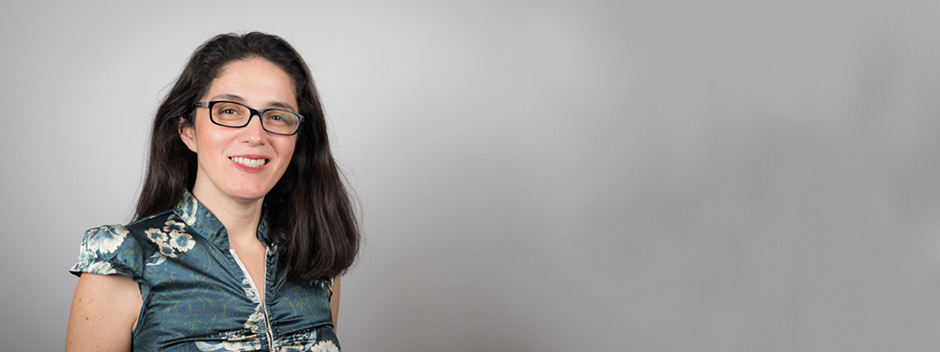With 18,000 employees across Australia and New Zealand, international health care provider Bupa is one of the largest in the region. SEEK Insights & Resources spoke with Carol Corzo (pictured), Talent Experience Manager at Bupa, on how the recruitment team is drawing on the company’s core values to inform a new and innovative candidate experience.
“In any organisation, first experiences are critical,” says Corzo. “Whether someone approaches us as a potential customer or as a potential employee, we want to be authentic, and to treat people with a level of humanity and humility.”
Bupa has more than two million views a year of its roles across its combined channels. In one of the many ways that Bupa is delivering on its vision ‘Bupa 2020’, the company is currently in the process of reviewing their ‘candidate experience’ and looking at it as one would a ‘customer experience’, focusing on their strong core values as a company that reinvests its profits.
“Our aim is to have an extraordinary candidate experience,” says Corzo.
What are candidates saying?
Bupa used an external consultant to survey everyone who had applied and were interviewed for a position over a 12-month period, including both successful and unsuccessful candidates. The survey asked respondents to give ratings to some questions, and allowed free text responses to others.
“We were pleased with the results,” says Corzo. “Overall, candidates were having a good experience in considering and choosing Bupa as a place to work."
The survey revealed some areas where the company needed to improve, which were already known to Corzo and her team – such as the Bupa careers website and better candidate collateral, which hadn’t been updated for six years. Although, as Corzo points out, being told things you already know is useful, as it helps to demonstrate within the company what actions need to be taken.
A ‘candidates are customers’ approach
Through the survey and other insight work, it highlighted two areas where the company could improve its candidate experience. Firstly, interview candidates wanted more information before they got to the interview. “They wanted to immerse themselves in Bupa,” says Corzo.
Secondly, candidates wanted to hear from the company more often during the process. “It can be a really stressful time – candidates put a lot of time and effort into the application process.”
Corzo believes that while an email may be appropriate if a candidate is not being asked to interview for the role, a personal call is required if an interview candidate is unsuccessful. (She does accept, however, that if a company doesn’t do this, it’s not usually because they don’t want to, it’s because many companies are too stretched).
“If a candidate is unsuccessful, we still want them to have a positive experience, as any candidate could still be a potential customer of Bupa.”
A personalised and segmented approach
As a result of the survey and other insights work, Bupa are now in the process of building a candidate experience that is both personalised (addressed to a particular candidate) and segmented (relevant to the position and level that the candidate has applied for). Prior to the first interview, candidates are now sent a video addressed to them by name. The video is a personalised message to a candidate, which tells them more about Bupa and the interview process, as we really want candidates to succeed.
Different videos are sent to internal and external candidates, reflecting the differing amounts of knowledge a candidate will typically have about Bupa and the role.
Bupa have also started looking at creating personas in certain critical hard-to-fill talent segments, such as sales, in order to better understand candidates’ behaviour, and what attracts them to the company.
“The key is creating a personalised, immersive experience for all our candidates,” says Corzo. “The more you know your candidates, the better the experience.”
Filling senior positions requires a direct approach
For senior appointments, Bupa relies almost exclusively on direct sourcing.
“What I’ve noticed is that senior candidates are now much more proactive in managing their career,” says Corzo. “Even if they are really happy in their roles, they still want to know what other opportunities are available.”
Corzo is now finding that social media networks are heavily used in the distribution of roles in the marketplace. “If I advertise a leadership role on SEEK, I know that the role will be picked up by peers, coaches and mentors, and then distributed amongst their social network. I love this level of collaboration and the use of social media.”
Using the available channels
Bupa has been proactively using SEEK’s new company reviews since the tool’s launch in 2015 to engage current and potential employees, which Corzo describes with a smile as, “like TripAdviser for companies”. The website currently holds around 240 reviews of what it’s really like to work for Bupa in Australia, written by current and past employees of the company.
“Also, we’re always looking to external channels to see what people are saying about us. We can’t rest on our laurels.
“What we’ve learned most to date is just how interlinked the customer experience and the candidate experience are,” says Corzo. “If our candidates have a good experience going through the life cycle of recruitment, on-boarding and joining Bupa, then ultimately it has an impact on our customers. It’s incredibly exciting to make those connections.”

